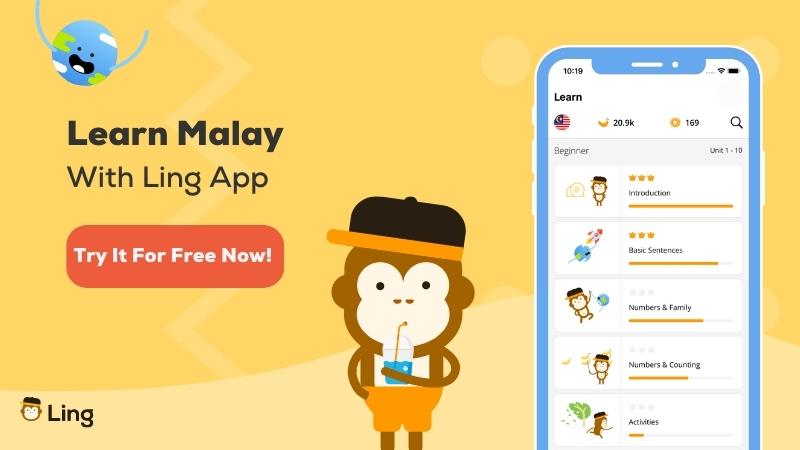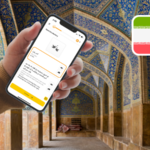Have you ever heard some terrible Malaysian airline jokes? Or maybe while at Malaysian airlines baggage claim, you’ve had to endure some horrible jokes from other passengers to kill time. Let’s save you from all that! Here are Malay jokes that guarantee the title of being the funniest in the lot.
Malaysian TV shows have their fair share of jokes, and Asian people have a lot of funny stories to share on TV. Have you heard of Harith Iskandar? If you want to hear Malaysian jokes, some words from this man will get you ROFL-ing in no time. Some other comedians you should know of are Kuan Jenhan, Jason Leong, Joanne Kam, and Kevin Jay. For these great names, a joke can be from any situation suited for local and global audiences, ranging from copying a style or impersonating someone to singing, dancing, and even interviewing celebrities.

Are Malaysian People Funny?
Malaysian people are hilarious! They have a high and healthy sense of humor, with a teeny tiny bit of a warning. Here are some things you make need to watch out for a while joking with a Malay:
- Jokes are not appreciated related to parents.
- Avoid jokes about religion. Malaysian people regard religion very highly.
- As Malaysia is so diverse, beware of the culture you are with and use appropriate jokes for those. For example, Malaysian Chinese may not necessarily understand jokes related to Malaysian Indians, and they may be mixed up from time to time, but it is safe among friends.
- Try not to repeat the same jokes about something or someone; it might get personal. The fact applies to all cultures, though.
Malay Jokes
Malaysian airlines have been rumored to have terrible pilots. There are, of course, thousands who do not believe this is true. But over the years, the Malay jokes related to airlines have heightened. Here are some of them and a few more!

Dark Jokes About Malaysian Airlines
| English Translation | Malay Jokes |
| What do R. Kelly and Malaysian Airlines have in common? They believe they can fly. | Apakah persamaan R. Kelly dan Malaysian Airlines? Mereka percaya mereka boleh terbang. |
| What do playing ball and Malaysian Airlines have in common? They are either a hit or a miss. | Apakah persamaan bermain bola dan Malaysian Airlines? Mereka sama ada hit atau miss. |
| “I’m sick of eating airline food all the time,” said a Malaysian shark. | “Saya muak makan makanan syarikat penerbangan sepanjang masa” kata seorang jerung Malaysia. |
| What is empty and spins round and round? Malaysian airlines baggage claim. | Apakah yang kosong dan berputar bulat dan bulat? tuntutan bagasi syarikat penerbangan Malaysia. |
| When I flew the Malaysian airlines last time, I decided not to shower first. Why? I figured I’ll get washed up on the shore. | Apabila saya menaiki syarikat penerbangan Malaysia kali terakhir, saya memutuskan untuk tidak mandi dahulu. kenapa? Saya fikir saya akan hanyut di pantai. |
| One day one ocean was talking to another. “Check out this awesome plane I got! Malaysian airlines flights are a rare brand”. The second one replied, “Nah, man, I got one too!” | Suatu hari satu lautan bercakap dengan lautan yang lain. “Lihat pesawat hebat yang saya dapat ini! Penerbangan syarikat penerbangan Malaysia adalah jenama yang agak jarang berlaku”. Yang kedua menjawab “nah man, saya juga mendapat satu!” |
| My dad’s computer crashed, and I asked him what he did. He replied, “I googled Malaysian airlines flights!” | Komputer ayah saya rosak dan saya bertanya kepadanya apa yang dia lakukan. Dia menjawab, “Saya google penerbangan syarikat penerbangan Malaysia!” |
Malaysian Man Talks About Their Trip
| English Translation | Malay |
| Did you have fun in the zoo? No! The marsupials hurt my wife. What, how? She got kicked in the butt by a kangaroo while annoying them. | Adakah anda berseronok di zoo? Tidak! Isteri saya dicederakan oleh marsupial. Apa bagaimana? Dia telah ditendang oleh seekor kanggaru semasa dia mengganggu mereka. |
A Guy With His New Phone
| English Translation | Malay |
| A Malaysian man buys a new phone. He puts it on airplane mode. Now he can’t seem to find it. | Seorang lelaki Malaysia membeli telefon baru. Dia meletakkannya dalam mod kapal terbang. Sekarang dia seperti tidak dapat mencarinya. |
Malaysian Athletes
| English Translation | Malay |
| At the commonwealth games, some Malaysian athletes started looking very nervous once the fun ended. When asked what was wrong, they said, “We’ll have to board a Malaysian flight home!” | Pada temasya komanwel, beberapa atlet Malaysia mula kelihatan sangat gementar sebaik tamat permainan. Apabila ditanya apa yang salah, mereka berkata “Kami perlu menaiki penerbangan Malaysia pulang!” |

Learn Malay With The Ling App
The Malay language is one of the easiest Asian languages to learn. Along with the fact that the script is Latin and so easy for English speakers to read, it also has no gender, no tenses, no plurals, and conjugations. How convenient is that?
If you are on a journey to Malay, it is highly recommended that you catch a few words or phrases before your trip. Especially after reading this article – you should know some more airline jokes before you board the plane!
It is why we bring you the Ling! It is a gamified language-learning app that allows you to learn flawless Malay in a matter of days. All the free lessons range from reading to writing, listening to speaking, and pronunciation to culture tips. You won’t even notice when you’ve picked up Malay.
Of course, we encourage you to make Malaysian friends and practice speaking with them. We also encourage you to watch Malay movies and get a good idea of the date and time. But for the core language, let the Ling app be your buddy and learning companion.
Try us out on the Apple Store or Google Play Store today! Prepare to be mind-blown!































































